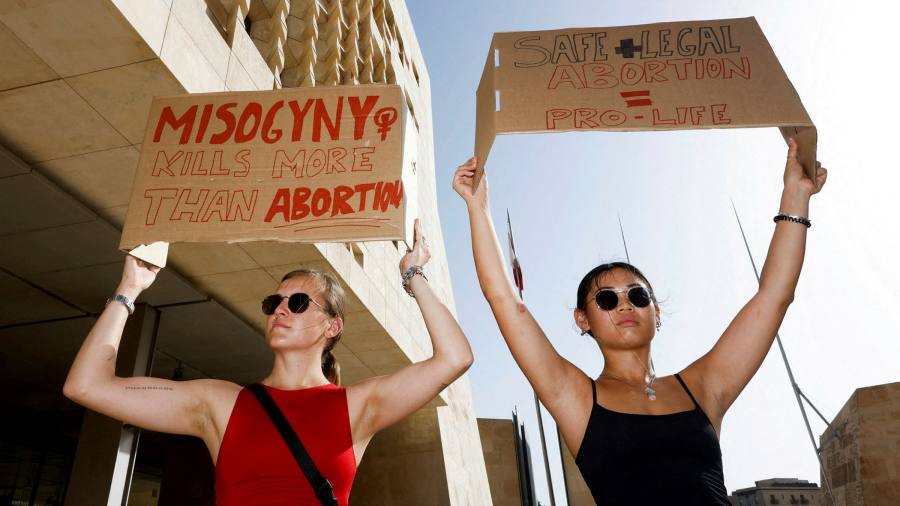I was sixteen weeks into a much-wanted pregnancy in 2006, when I went for a routine check-up. At my previous appointment, I’d been thrilled to hear the foetal heartbeat, which sounded to me like the blades of a helicopter whirring crazily at top speed.
This time, when the nurse put the Doppler monitor to my slightly swollen belly, there was only silence. “Where’s the heartbeat,” I asked, casually. The nurse did not reply and moved the monitor around my abdomen. “Where’s the heartbeat,” I repeated, anxiously. The nurse excused herself to call the doctor.
Within hours, I was admitted to hospital, dosed up on drugs to induce labour. My baby had died sometime before, but my body had not yet realised. It was a so-called ‘missed miscarriage’, requiring medical intervention to end the pregnancy and clear my uterus to avoid sepsis or potentially fatal bleeding.
Enduring the grim and arduous process of releasing a child I would never know, I felt acutely aware of how perilous childbirth was for women in centuries past. I’ve been thinking about that traumatic experience again in recent days since the US Supreme Court overturned Roe vs Wade, prompting new bans on abortion in Republican-led states. On the tiny island of Malta, doctors are this month challenging their nation’s own draconian abortion ban, which prevented them from providing life-saving treatment to a foreign tourist undergoing a complicated late miscarriage of her own.
I was lucky — or as lucky as you can be when a first pregnancy ends heartbreakingly in midterm. Because the foetus had already died, my doctors in Thailand, where I then lived, did not have to make tough decisions about my medical care in a legal grey area.
But things aren’t always so simple. Second-trimester miscarriages typically take far longer — and carry higher risks of serious complications — than early ones, making timely and appropriate medical intervention critical. Abortion bans confuse and prevent such treatment.
In 2012, Savita Halappanavar, an Indian dentist who was 17 weeks pregnant, died from septicaemia in Ireland after doctors refused an emergency termination of her pregnancy while she suffered protracted miscarriage. Though the doctors knew her baby could not survive, they refused to abort the failing pregnancy — or accelerate the agonisingly slow miscarriage — while there was a foetal heartbeat, citing Ireland’s Catholic ethos.
When the tragedy hit the headlines in India, people were aghast at such a developed country denying life-saving care on religious grounds. In 2018, Irish voters repealed the law that gave an equal right to life to a foetus and its mother, thus paving a way for the legalisation of abortion.
In Malta, doctors are demanding an easing of the country’s abortion ban after an American tourist had to be evacuated to Spain by air ambulance last month for emergency care. She was undergoing a partial miscarriage at 16 weeks that left her foetus with no hope of survival — but Maltese medics refused to terminate the pregnancy until the foetal heartbeat stopped, citing a strict 1850s proscription on abortion that makes no exceptions even to save a mother’s life. Clinicians who flout this rule face four years’ imprisonment.
Around 135 Maltese doctors have now signed a judicial petition demanding a review of the law, which they say obstructs proper treatment for women in violation of Europe’s human rights charter.
Gynaecologist Isabel Stabile, a member of campaign group Doctors for Choice Malta, says if local authorities refuse to engage, doctors will sue. “The law has a chilling effect on doctors’ ability to practice,” she told me, complaining that clinicians are working with their “hands tied”.
In the US, states now criminalising abortion may exercise exemptions for women whose lives are in danger. Yet in practice, Stabile warns, such bans still impede care, as doctors fearful of criminal prosecution may delay necessary intervention until the danger to a woman’s life is so indisputable that it is too late. When pregnancies go wrong, women “can go from being well, to being unwell, to being very unwell and being dead very quickly,” Stabile told me. “Who decides when you at are the brink?”
amy.kazmin@ft.com
Stay connected with us on social media platform for instant update click here to join our Twitter, & Facebook
We are now on Telegram. Click here to join our channel (@TechiUpdate) and stay updated with the latest Technology headlines.
For all the latest Health & Fitness News Click Here

